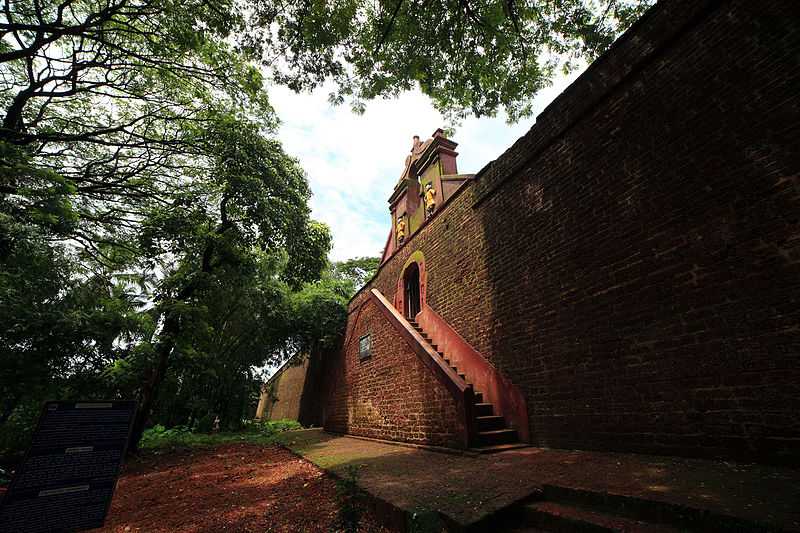Travel
World Heritage Day: Here ‘s A Look At The 6 Best Heritage Sites In Kerala

From Kasaragode to Kanyakumari, Kerala is known for its rich cultural heritage, natural beauty, and breathtaking sites. The state is home to some of the best heritage sites in South India and provides an ecstatic experience for travellers and locals who are interested in witnessing these wonders
Text credit: Shibul Pavithran
Kerala is richly endowed with heritage buildings, structures, and sites, all of which are having very unique architectural and aesthetic importance. The heritage sites are not just monuments, but include buildings, artifacts, structures, areas of historical significance, aesthetic, architectural, cultural and environmental significance and even traditional skills. Some of these age-old structures speak about a fascinating period from Kerala’s charming past, drawing countless history fanatics, archaeology lovers and art & architecture enthusiasts from all across the globe. If you are also amongst those who get amazed by the beauty and history of the ancient buildings and monuments, a trip to Kerala is definitely a must for you. Not many know that this beautiful state has been a major contributor to India’s rich culture and history. We have shortlisted 6 heritage sites in Kerala which may definitely fascinate you and make you want to visit them.
Bekal Fort, Kasaragod: 
Bekal fort is more than 300 years old and is believed to have been built by Sivappa Naik of the Ikkeri dynasty in1650. There is also another belief that it was originally built by Kolathiri Rajas and later captured by Sivappa Naik. The fort was occupied by Hyder Ali in 1763 AD and later by British. Bekal fort is one of the largest and best preserved Fort in the whole of Kerala, bordered by a magnificent beach. The fort is built on 35 acre headland on the shores of Arabian Sea, rising to a height 130 feet. Bekal Fort is among the top visited locations in Kerala. The Hanuman temple near the entrance and the ancient Muslime mosque situated near the fort, hold testimony to the age-old religious harmony that prevailed in the area.
Eddakal Caves, Wayanad:
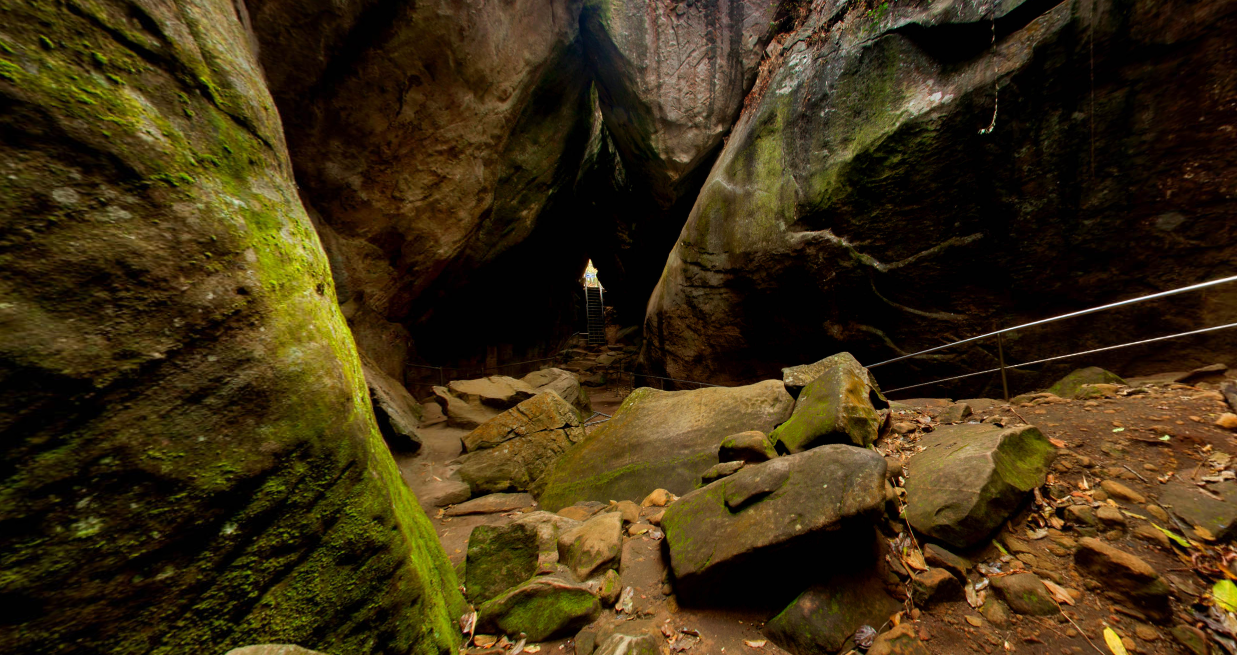
Source: Sanchari
Situated an altitude of 4000 feet, these caves were discovered by Fred Fawcett, the then Superintendent of Police of the Malabar district in 1890, during his hunting trip to Wayanad. The name ‘Edakkal’ literally means ‘a stone in between’. It is the only place with Stone Age carvings in South India. The carvings belonging to Neolithic and Mesolithic Age include ancient stone scripts, ancient weapons, symbols, animal figures and human beings. The rock surface is filled with motifs and one can see figures, crosses, triangles, tridents, various animals and human figures. Edakkal Caves is one of the most visited places in Wayand.
Tellicherry Fort, Thalassery:
Source: holidify.com
Tellicherry Fort is located in Thalassery town of Kannur District of Kerala India. The fort was built in 1708 by the British East India Company to establish a stronghold on the Malabar coastline. It is a testament to the impressive engineering skills of the British engineers and designers, the fort encloses a number of secretive tunnels and underground chambers that once served as hiding burrows for the defeated British military personnel. This historical fort today, is maintained by the Archaeological Survey of India and indeed, they have done a great job, making it an absolute delight for visitors who have a affinity for history and architecture. So, if you are also amongst those avid history buffs, a visit here definitely has to be marked on your travel itineraries.
Kappad Beach, Kozhikode:
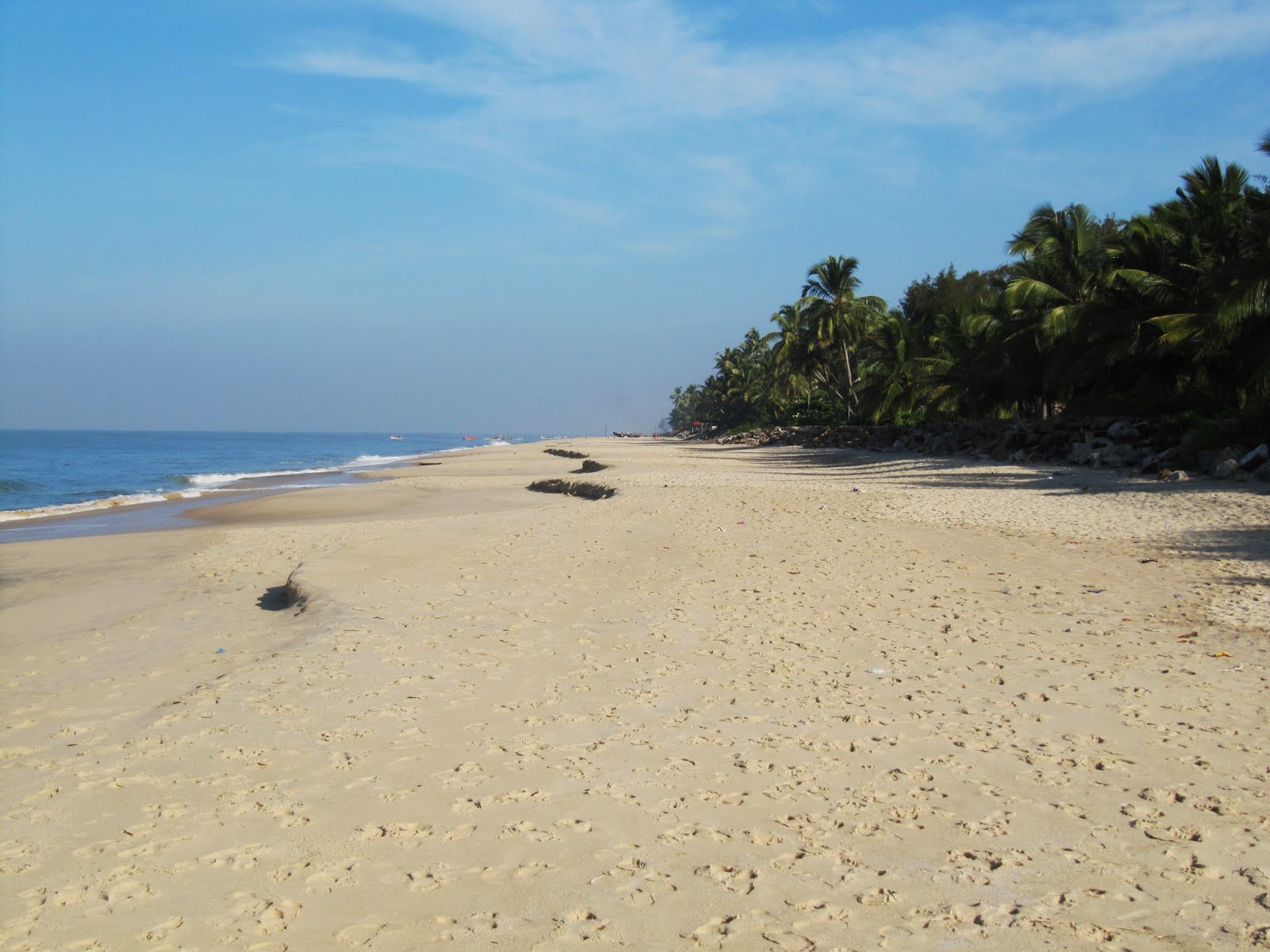
Source: placeforvacations.com
Vasco da Gama landed on Indian soil on 27th May 1498 at Kappad beach, Kozhikode along with 170 men. There is a monument on the beach that commemorates the landmark event of Vasco da Gama’s arrival. This marked the beginning of a new era in the relationship between the Indians and the Portuguese which lasted for 4 to 5 centuries. The beach is ideal for relaxing and playing around with sand. Devi Temple, which is believed to be 800 years old, is situated on top of a rock near the beach. Sunset is a great site to watch here, in the combination of Sea and River.
Vadakkunnathan temple, Thrissur

Source: findmessages.com
Vadakkunnathan Temple, an ancient Hindu temple dedicated to Lord Shiva in the city of Thrissur. It exemplifies impressive Kerala type of architectural style that is quite appropriate for regions where rains are vigorous. The temple has a beautiful ”Kuttambalam” – separate temple theatre for dances, etc., and monumental towers on all four cardinal directions. Vadakkunnathan Temple is the main venue of the famous Thrissur Pooram festival held every year in the month of April or May. This festival attracts more than a lakh of people, including many foreigners. The festival goes on for seven days.
Palakkad Fort, Palakkad:
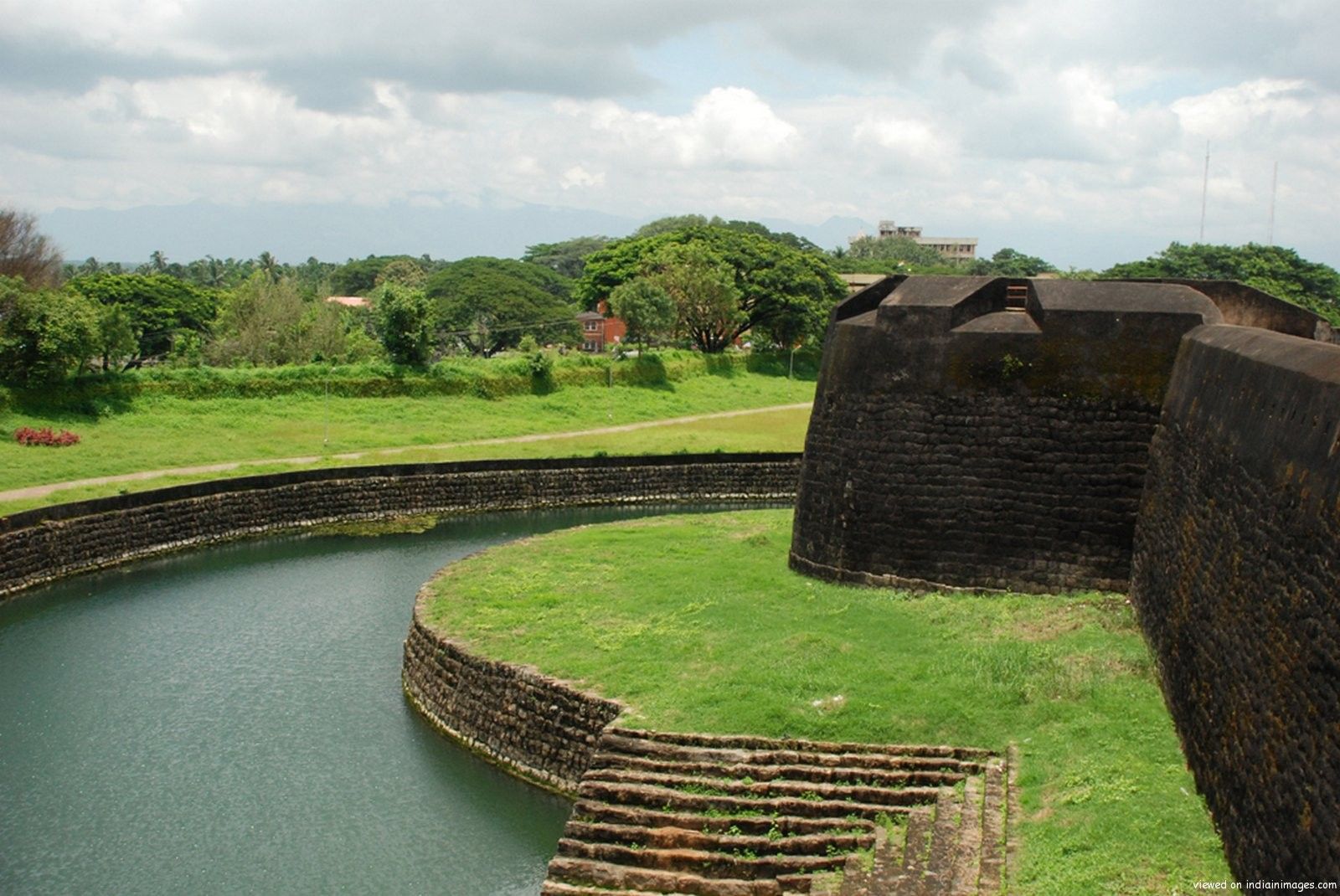
Source: Tourmet.com
The Palakkad Fort in Kerala is a beautiful historical monument that has gently integrated its high walls with its surrounding green gardens. One of the most well-preserved forts in the state of Kerala, the Palakkad fort was built in the 1766 AD by Hyder Ali, after which the fort was taken over and renovated by British in 1790. The fort is protected by Archeological Survey of India. And even today, the tough walls of the fort speak volumes about the stories of Tipu Sultan. The fort is square in shape, with massive walls and strong bastions in all four corners and in the middle. It is among the best preserved forts in South India. The thick laterite walls impress all who view it. A large ground that lies between the Fort and the Palakkad town hall is an important location for public meetings and important functions. Today it is a protected monument under the Archaeological Survey of India. It is a preferred picnic spot for everyone visiting Palakkad.
Travel
Travel Wellness: Staying Healthy and Fit While Exploring
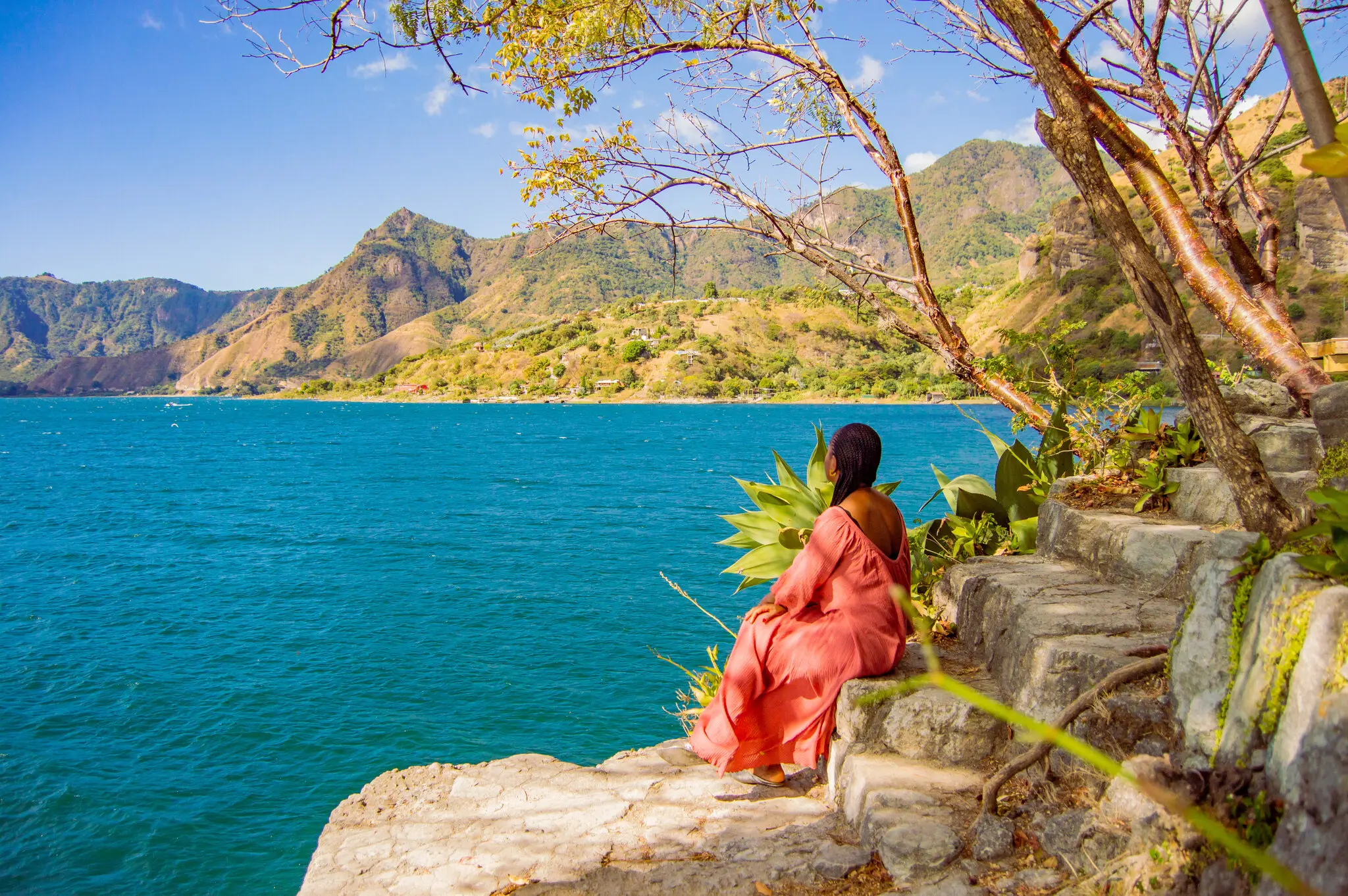
Travelling is an enriching experience that broadens horizons and creates lasting memories. However, maintaining your health and fitness while on the road can be a challenge. Whether you’re navigating busy city streets, lounging on a beach, or embarking on an adventure, staying well and fit is crucial for enjoying your travels to the fullest. Here are some practical tips to help you stay healthy and active while exploring new destinations.
Plan Your Travel Meals

Eating healthy while traveling can be challenging, but with a little planning, it’s entirely achievable. Research local cuisine before your trip and seek out restaurants or markets that offer nutritious options. Opt for meals that include plenty of fruits, vegetables, lean proteins, and whole grains. If you’re staying in a place with a kitchen, consider preparing some of your meals to maintain control over ingredients and portions.
Stay Hydrated
Travel can easily disrupt your hydration routine. Always carry a reusable water bottle and refill it regularly. Drinking enough water helps with digestion, energy levels, and overall well-being. If you’re traveling to a place with different water quality, consider bringing a portable water purifier or sticking to bottled water.
Incorporate Physical Activity
Finding time to exercise while traveling can be tough, but it’s essential for maintaining your fitness and energy levels. Here are a few ways to stay active:
- Use Hotel Gyms: Many hotels offer fitness centers. Utilize these facilities to keep up with your workout routine.
- Explore on Foot: Walking or biking around your destination not only provides exercise but also allows you to experience the city’s sights more intimately.
- Outdoor Activities: Take advantage of local outdoor activities such as hiking, swimming, or even a beach workout.
Maintain a Sleep Schedule

Traveling at first class. Flight with comfort. Pretty young woman sleeping in airplane.
Adjusting to new time zones can disrupt your sleep pattern, which affects overall health. Try to maintain a regular sleep schedule by setting consistent bedtimes and wake-up times. Creating a relaxing bedtime routine, such as reading or listening to calming music, can also help you wind down and improve sleep quality.
Practice Mindfulness and Stress Management
Travel can be exciting but also stressful. Incorporate mindfulness practices such as meditation, deep breathing exercises, or yoga to manage stress and maintain mental well-being. Many travel destinations offer wellness retreats or classes where you can participate in mindfulness activities.
Pack a Travel Health Kit
Prepare a travel health kit with essentials like vitamins, medications, and first-aid supplies. Include items such as hand sanitizer, travel-sized disinfectant wipes, and any prescription medications you may need. Having these on hand can help prevent illness and manage minor health issues.
Stay Active During Travel
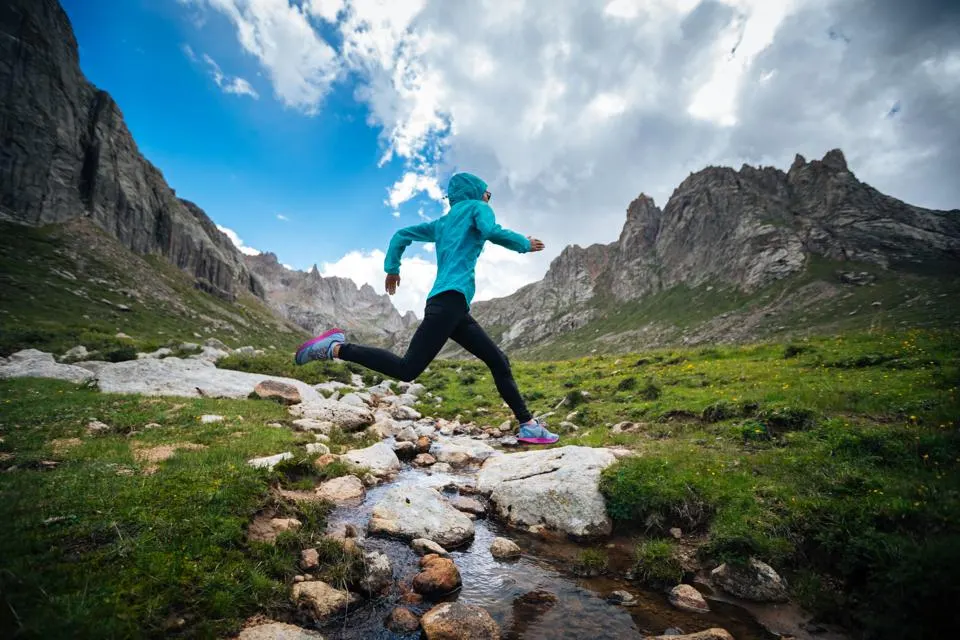
Long flights or car rides can lead to stiffness and discomfort. Take breaks to stretch or walk around every few hours. Simple exercises like seated leg lifts, neck stretches, and shoulder rolls can help improve circulation and reduce muscle tension.
Adopt Local Wellness Practices
Explore and embrace local wellness practices and traditions. Whether it’s a traditional Thai massage, Japanese hot springs, or Ayurvedic treatments in India, incorporating local wellness practices can enhance your overall travel experience and contribute to your well-being.
Avoid Overindulgence
While it’s tempting to indulge in local delicacies, moderation is key. Balance indulgent meals with healthier options and be mindful of portion sizes. Enjoying treats in moderation allows you to savor local flavors without compromising your health goals.
Stay Social and Connected
Social interactions and maintaining connections with loved ones can boost mental health and overall happiness. Make time to connect with fellow travelers, locals, or family and friends back home to keep your spirits high and your travel experience fulfilling.
By integrating these wellness tips into your travel routine, you can ensure a healthier and more enjoyable journey. Staying active, eating well, and managing stress will help you feel your best and make the most of your travel experiences. Safe travels and happy exploring!
Travel
Real House of the Dragon Location You Want to Visit
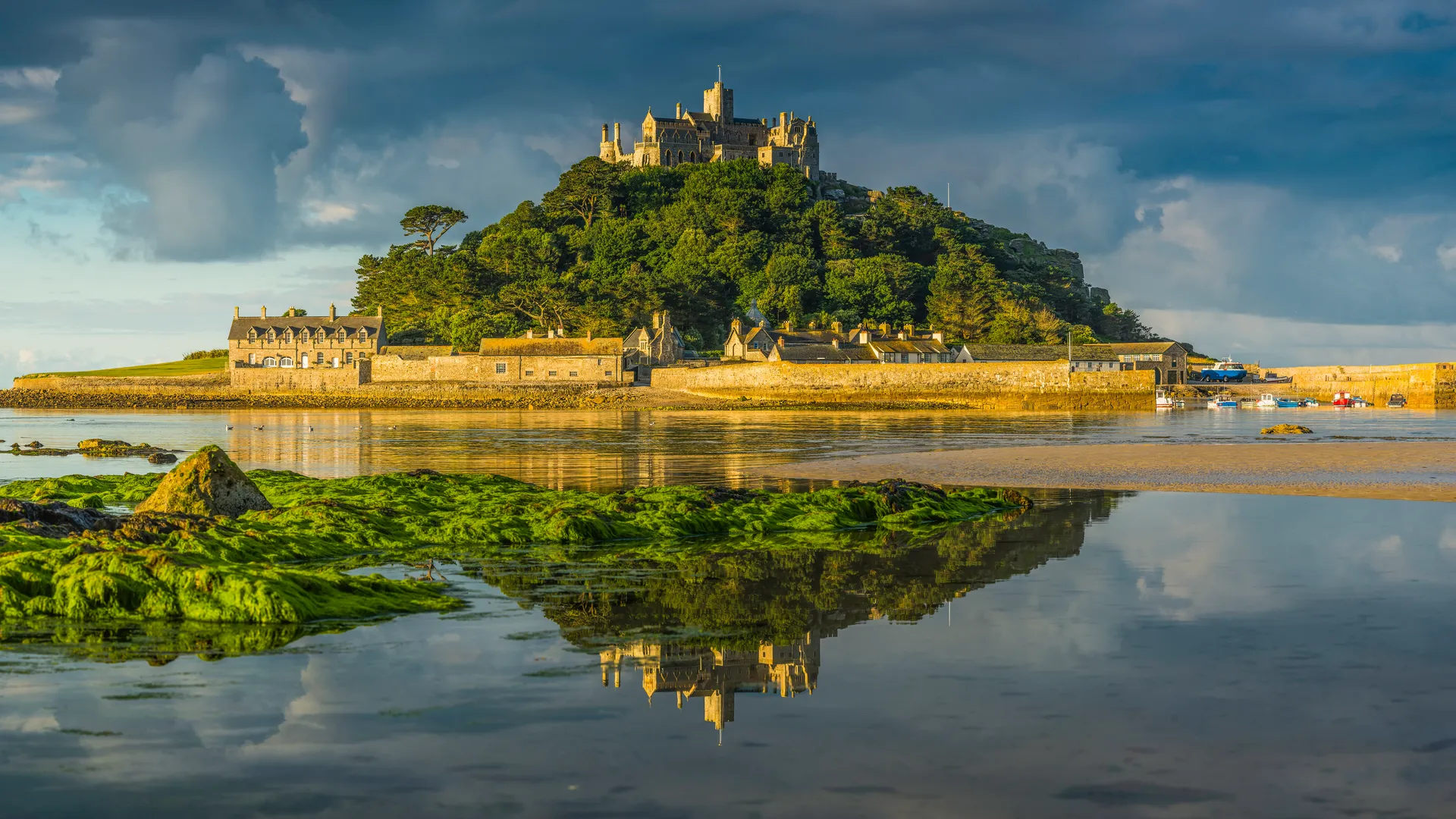
Returning to Westeros for the battle between the Blacks and Greens in “House of the Dragon” season two. A civil war within the House of Targaryen over who should inherit the Iron Throne is the subject of the television drama series, which is based on George R. R. Martin’s Fire & Blood and takes place two centuries before Game of Thrones. Along with other important members of the season one ensemble, Olivia Cooke as Alicent Hightower, Emma D’Arcy as Rhaenyra Targaryen, and Matt Smith as Daemon Targaryen are returning for the presently running second season.
We can’t wait to explore all of the amazing filming locations that this series has brought us. Considering how rich the universe is, it makes sense. Rather than depending solely on computer-generated scenery and soundstages, several of the actual filming locales contribute to the world of Westeros’ distinctive atmosphere.
Here, a guide to House of the Dragon filming locations you can visit:
Castleton, Derbyshire, England
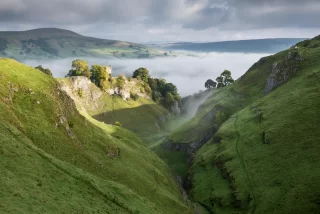
In the first season of the show, Castleton, a village in high-peaked Derbyshire with one of the oldest lead mines, was transformed into The Vale of Arryn. Those who watch Game of Thrones would recall this as the location of House Arryn and the Eyrie, a stronghold where adversaries can be driven to their deaths via a moon portal. The region, which was once inhabited by Celtic people, is well-known for its traditional English hamlets and the limestone valley of Cave Dale, which is located inside the national park.
St. Michael’s Mount in Mount’s Bay, Cornwall, England
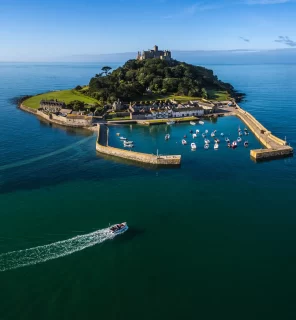
St. Michael’s Mount is a rocky tidal island with a 12th-century mediaeval church and a small, intimate village connected to the island of Marazion by a causeway that visitors can cross on foot during low tide. Blackwater Bay, a sizable body of water at Kings Landing’s edge, is home to House Velaryon, the fictional Driftmark of House of the Dragon, which is housed in the island’s main fortress. A prior appearance of Driftmark occurred in the Battle of the Blackwater in Game of Thrones.
La Calahorra, Granada, Spain
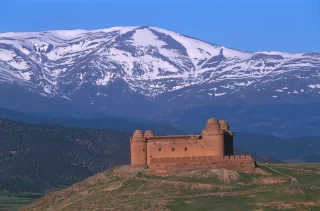
Reimagined as Pentos, one of the cities bordering the seas of Westeros, the imaginary continent at the heart of the world of Game of Thrones, is the municipality La Calahorra in eastern Granada. At the base of the Sierra Nevada mountain range, on the solitary hill in the region, lies a mediaeval fortress known as Castillo de La Calahorra, one of the region’s most iconic monuments. The exterior of the castle, which serves as the seat of House Targaryen on House of the Dragon, defies the rules of Gothic design, making it one of the first buildings in Spain to be influenced by the Renaissance between 1509 and 1512. Its exquisite split-level interior features a centre courtyard, four corner towers, and marble.
Cáceres, Extremadura, Spain
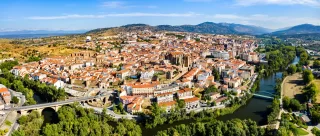
The province of Cáceres, in western Spain, is a veritable time capsule. Ancient structures that date back hundreds of years nevertheless look substantially the same, displaying a variety of architectural influences, such as Roman, Moorish, and Gothic. Several locations in the region were used to film the King’s Landing sequences, including the walled city of Plasencia in season one, Trujillo in season two, and the capital city of Cáceres in both seasons.
Bourne Wood in Farnham, England
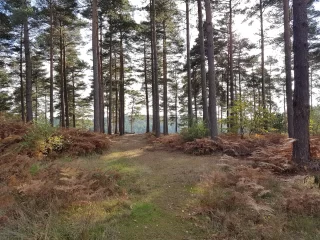
Bourne Wood was the location of one of the largest fight scenes from season two of House of the Dragon. Large clearings in the forest make it perfect for expansive combat scenes and large film crews, while the absence of newer, more contemporary buildings or power lines gives the location a timeless sense. According to London Cult’s documentation, the forest was outfitted with a tent camp and certain areas were covered in artificial snow. The woodland is about an hour’s drive away, making the setting very handy for films like House of the Dragon that are headquartered out of the Warner Bros. Leavesden studio.
Gaztelugatxe, Basque Country, Spain
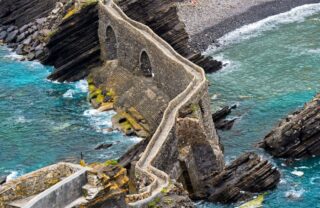
An island in Biscay called Gaztelugatxe has a hermitage that goes back to the tenth century. The iconic stone bridge was used for filming House of the Dragon. In season seven, the islet served as a stand-in for Dragonstone during filming for Game of Thrones. the location of the initial season’s encounter between Rhaenyra and her dragon on Dragonstone Bridge.
Travel
Essential Summer Travel Bag Must-Haves
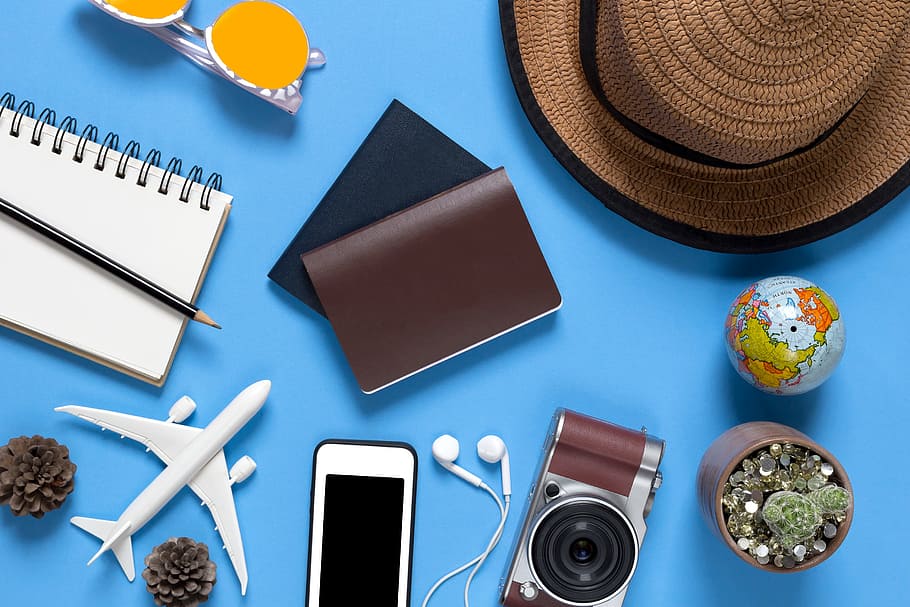
As the summer sun beckons, it’s time to dust off your travel bags and embark on exciting adventures. Whether you’re jetting off to exotic destinations or exploring hidden gems closer to home, packing the right essentials can make all the difference in ensuring a hassle-free and enjoyable journey. Join me as we explore the must-have items to pack in your travel bags for a memorable summer getaway.
Sun Protection Essentials:

Beat the heat and safeguard your skin from harmful UV rays with sun protection essentials. Don’t forget to pack sunscreen with a high SPF, sunglasses to shield your eyes, and a wide-brimmed hat for added protection. Additionally, lip balm with SPF and aloe vera gel can provide relief from sunburns and keep your lips hydrated.
Lightweight Clothing Options:

Embrace the spirit of summer with lightweight and breathable clothing options that keep you cool and comfortable on your travels. Pack versatile pieces such as cotton shirts, shorts, flowy dresses, and swimsuits for beach outings. Opt for wrinkle-resistant fabrics to minimize the need for ironing and save space in your luggage.
Hydration Essentials:

Stay hydrated on the go by packing a reusable water bottle in your travel bag. Fill it up whenever you have access to clean drinking water to quench your thirst and reduce plastic waste. Consider packing electrolyte packets or tablets to replenish lost minerals during outdoor activities or hot weather.
Travel-Friendly Toiletries:
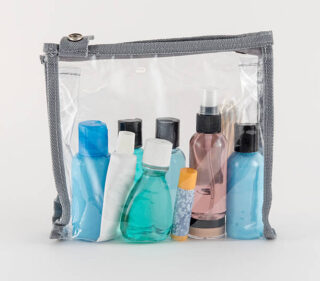
Travel toiletries in clear plastic, quart-sized bag on white background
Streamline your toiletry bag with travel-sized essentials that meet TSA regulations and save space in your luggage. Pack items such as shampoo, conditioner, body wash, toothpaste, and moisturizer in leak-proof containers. Don’t forget to include a compact travel towel and wet wipes for quick refreshment on the go.
Tech Gadgets and Accessories:

Capture unforgettable moments and stay connected with essential tech gadgets and accessories. Pack your smartphone, camera, or GoPro along with chargers, power banks, and adapters for international travel. Consider investing in a lightweight and portable Bluetooth speaker for impromptu beach parties or outdoor picnics.
First Aid Kit and Medications:

Home first aid kit on a blue background. The elements of the first aid kit are laid out on the table.
Be prepared for minor emergencies and health-related issues by packing a well-stocked first aid kit in your travel bag. Include items such as adhesive bandages, antiseptic wipes, pain relievers, antihistamines, and motion sickness tablets. Don’t forget to pack any prescription medications you may need during your trip.
With these essential items packed in your travel bag, you’re ready to embark on a summer adventure filled with unforgettable experiences and cherished memories. From sun protection essentials to tech gadgets and first aid supplies, being prepared for every situation ensures a smooth and enjoyable journey wherever your travels may take you. So, grab your bags, soak up the sun, and let the summer adventures begin!
-

 Style11 months ago
Style11 months agoBridal Guide : Best Looks of Radhika Merchant Ambani
-

 Fashion1 year ago
Fashion1 year agoMost Discussed Ajrakh Saree of Alia Bhatt
-

 Entertainment1 year ago
Entertainment1 year agoThe Most Stylish Guests of Bhagya Suresh Reception
-

 Entertainment1 year ago
Entertainment1 year agoBridal Bliss : All Bridal Looks of Swasika Vijay
-

 Movies1 year ago
Movies1 year agoA Nostalgic Journey Through Love &Cinema : Best Bollywood Romantic 90s Movies
-

 AD8 months ago
AD8 months agoPopular Curtain Fabrics to Consider for Your Home
-

 Fashion1 year ago
Fashion1 year agoMajor Denim Trends You Need To Know in 2024
-

 Events9 months ago
Events9 months agoBest of Fashion Looks : Diya Krishna Wedding

